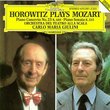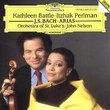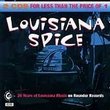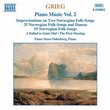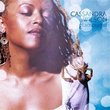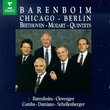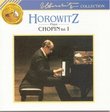| All Artists: Gabriel Faure, Emanuel Ax Title: Fauré: Piano Quartets Members Wishing: 0 Total Copies: 0 Label: Sony Original Release Date: 1/1/1993 Re-Release Date: 1/12/1993 Genre: Classical Style: Chamber Music Number of Discs: 1 SwapaCD Credits: 1 UPC: 074644806625 |
Search - Gabriel Faure, Emanuel Ax :: Fauré: Piano Quartets
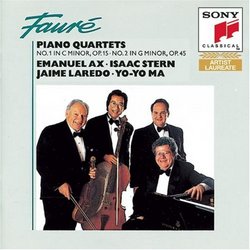 | Gabriel Faure, Emanuel Ax Fauré: Piano Quartets Genre: Classical
|
Larger Image |
CD DetailsSimilarly Requested CDs
|
CD ReviewsFINESSING FAURE Melvyn M. Sobel | Freeport (Long Island), New York | 11/08/2001 (5 out of 5 stars) "Gabriel Faure (1845-1924) inhabits a "sound world" uniquely his own: moody, harmonically complex, sometimes neurotically so, melodically elusive. Less readily accessible than either of his French contemporaries, Debussy and Ravel, Faure's chamber music, nonetheless, is infinitely rewarding and certainly should be more widely recorded and available. This remarkably rich offering of Faure's only two piano quartets (in C Minor, Op. 15 and G Minor, Op. 45) will, no doubt, go a long way in re-energizing interest in this coupling of the composer's most "popular" ensemble works. The reason is obvious: Ax, Stern, Ma, and Laredo. These musicians, glorious all, bring to Faure a warmth, freshness, depth, clarity and affection I've never heard in any other interpretation. Rather than dwelling on the somber, often disturbing musical elements Faure can manifest, these remarkable performers infuse the music with a robust charm, full-blooded emotional intensity and a delicious sense of pluck that is irresistibly impish--- all seeming easily and spontaneously generated. Accessible is a word that is critical here. All too often, and Faure is no exception, it is the performance that can make or break a composition, especially on initial hearing. Faure needs finessing, understanding, simpatico; otherwise, his chamber compositions can sound a tad oppressive. Musicians, like these, who reach into the very core of Faure and retrieve the penultimate glories of his searching, timeless Adagios, who can transform opening Allegros into masterpieces unto themselves, and whose playing radiates the subtle, naive delight imbued in the Scherzos, are the kind of incredible artists who enable Faure to have his say and to become readily and beautifully accessible. Violinist Stern and violist Laredo meld effortlessly, yet elucidate Faure's complex writing sublimely, while Ma's cello is always supportive, never intrusive, and pianist Ax, superb throughout, keeps apace of every mood, every shift in design, every nuance--- and never center-stages himself. The integration of this ensemble, particularly in these Faure piano quartets, is a miracle to hear, their playing raising these works to near pinnacle height; yet, at the very same time, keeping Faure entirely approachable. The recording itself, too, is a revelation: warm, full, detailed and thrillingly realistic. The "presence" of these musicians is immediate. [Running time: 66:54]" Another Classic Quartet Michael B. Richman | Portland, Maine USA | 01/02/2001 (5 out of 5 stars) "Virtuosos Yo-Yo Ma, Emanuel Ax, Isaac Stern and Jamie Laredo have once again struck chamber gold. The group responsible for classic discs of piano quartet music by Beethoven/Schumann, Brahms, Dvorak and Mozart (see my reviews of the latter two) have recorded another gem with this album. Coming from a jazz background, I can only compare these men's musical understanding and familiarity to that of the classic Coltrane Quartet. As far as the compositions go, Faure's two piano quartets were written in the 1880s, and they are hauntingly beautiful, and surprisingly dense and layered. While Faure is not as well known as the five classical composers mentioned above, this disc should do a lot to remedy that problem." Intriguing pieces, very well done Jeffrey Lee | Asheville area, NC USA | 05/20/2004 (4 out of 5 stars) "To call these works by Faure mood pieces would be as apt a description as any. The later opus 45 Quartet is the more popular as well as the more mature and somber work. Unlike its younger opus 15, it doesn't offer much of a lift for the spirits; but, I suppose, that was not the intent of its creator. Nevertheless, this solid group of artists gives sensitive and extremely well played performances of both works. I find the earlier quartet especially satisfying. Each of its four movements is quite attractive. The first is fairly intense and rhapsodic. The second (scherzo) is reminiscent of sound track music for a Charlie Chaplin movie, however, lest one consider this sacrilege and take umbrage, I will assert it is somewhat more sophisticatedly charming. Here, pianist Ax displays a very pleasant litheness and is nicely accompanied by his stringed partners. The adagio has a tinge of sadness, but the group underscores beautifully its poignant qualities. In the final movement, the quartet is warmly attuned to the mixture of colorful, freely flowing sentiment. Sound quality is very satisfying."
|

 Track Listings (8) - Disc #1
Track Listings (8) - Disc #1
